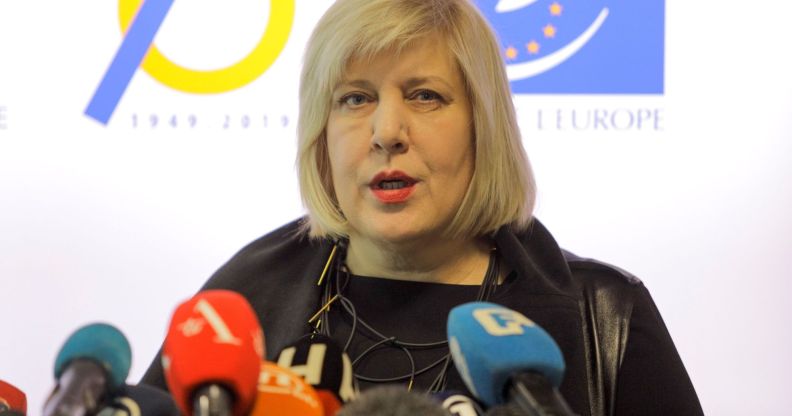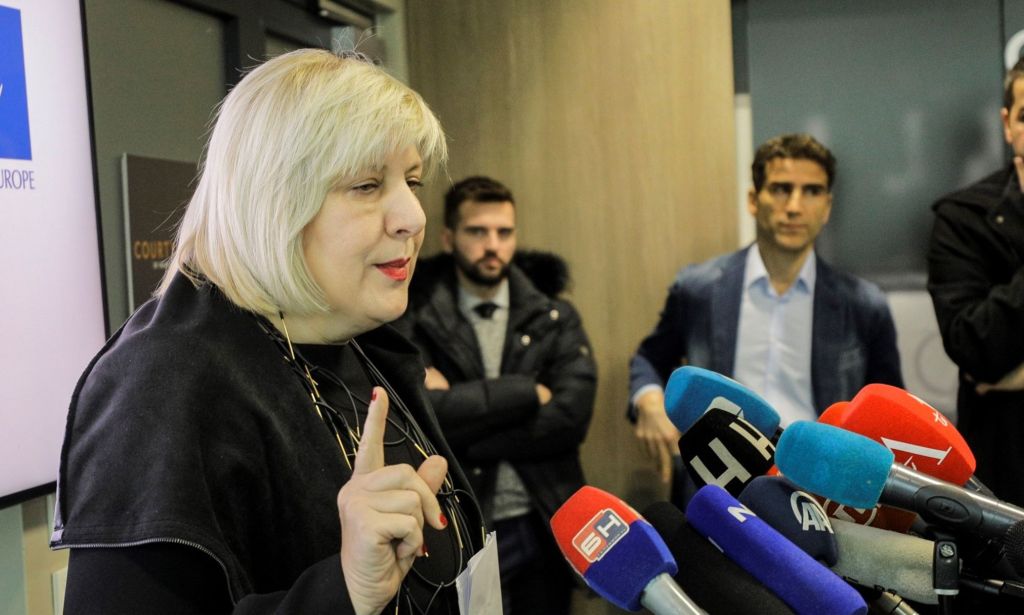EU human rights commissioner calls for end to ‘dangerous’ conversion therapy across all of Europe

Dunja Mijatović called for EU member states to put an end to conversion therapy. (Getty)
Dunja Mijatović called for EU member states to put an end to conversion therapy. (Getty)
So-called “conversion therapy” has “no place in a human rights-based society”, according to the EU commissioner for human rights.
Bosnian EU official Dunja Mijatović wrote in a Thursday (16 February) report that the controversial practice is “dangerous” and should end.
Conversion therapy is an abusive attempt to change an LGBTQ+ person’s sexuality or gender identity through psychological manipulation, often carried out by religious or medical institutions and often following pressure from family members.
Not only does the practice not work, but it can also leave behind immense trauma and mental health issues for those subjected to it.
“These interventions continue to take place across Europe, often lawfully and commonly under the guise of medical or religious tenets,” Mijatović explained.
“Despite the profound and long-lasting harmful effects that these practices can have, many victims are left with neither recognition of the harms that they have endured, nor redress.
“This must end.”

According to the human rights commissioner, conversion therapy typically takes one of three forms – psychotherapy, medical intervention, and faith-based intervention.
Businesses that actively profit from the harmful exercise can often continue to function due to “legislative discrepancies” that allow them to relocate to countries where it is still legal.
“These practices conflict with an overwhelming consensus of international human rights and scientific bodies,” Mijatović added.
“Current efforts by member states to adopt legal bans on conversion practices are a welcome development.
“These bans must be drafted with care and be as precise as possible so that they respect the principle of legal certainty and are in line with human rights framework.”
Due to the unregulated nature of conversion therapy, it’s difficult to pinpoint how frequently it is practised in EU member countries.
While a study from the European Parliament estimated at least 2 per cent of LGBTQ+ Europeans have been subjected to conversion therapy, Mijatović clarified that the number could be higher “since they often take place under secretive conditions.”
“I am also particularly troubled by findings that, globally, children and young adults are at far greater risk of being subjected to them,” she wrote.
Tackling these manipulative exercises requires increased awareness and a plan to eliminate conversion therapy institutions, according to the EU official.
“I have observed an increased awareness of conversion practices in our region, and a recent impetus toward confronting them.
“It is essential for states to address political or social anti-LGBTI discourse presenting LGBTI people as deviant or abnormal,” she continued. “Such rhetoric is likely to foster a culture in which LGBTI people are forced or feel pressured to undergo conversion practices.”

